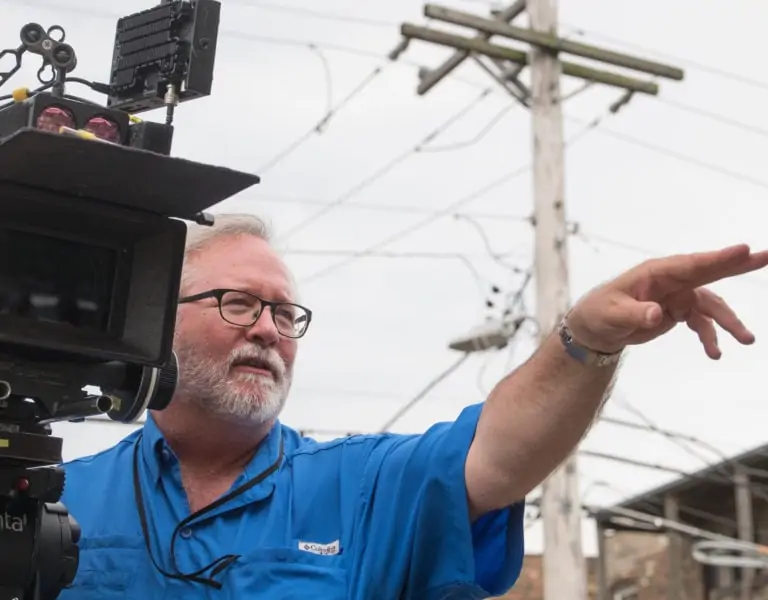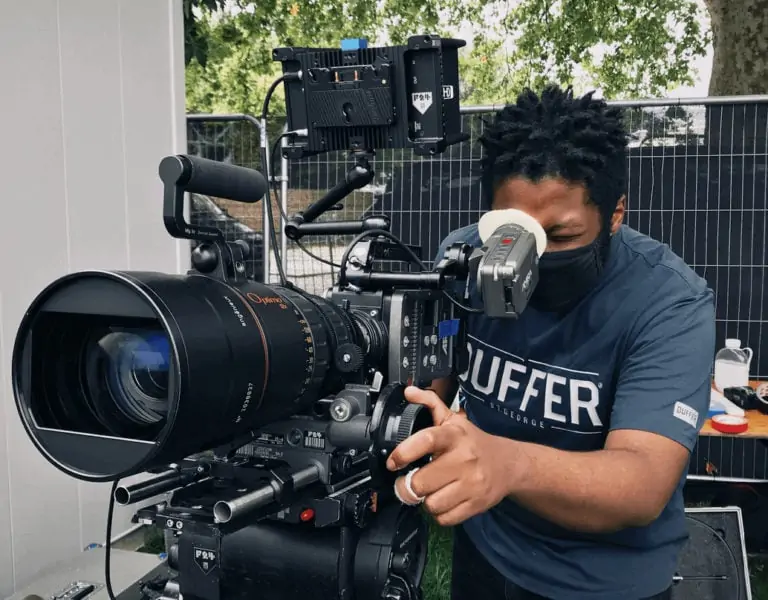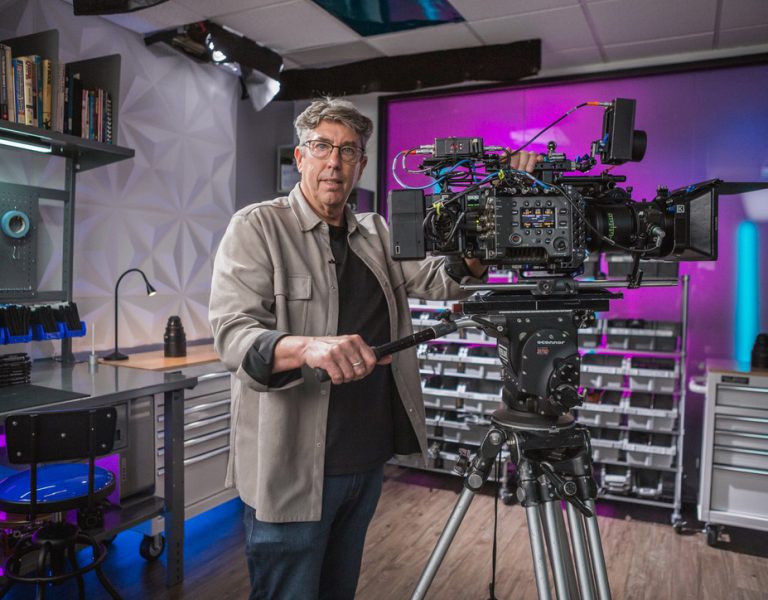The shortage of skilled crew amidst a production boom has been well-documented, but a post-pandemic flurry of apprenticeships and training schemes hopes to boost the talent pipeline. Is it enough?
It’s something of a miracle that UK film crew enjoys the international reputation it does, with recruitment largely lacking even a semi-formal system of qualification or advancement. For all its faults, that approach has generally sourced good people in sufficient numbers, though film is sometimes compared, unflatteringly, to fields like fashion for its tolerance of unpaid labour and unabashed nepotism during the induction process.
The peak-Netflix, post-pandemic production boom, though, has brought issues of availability to a head, and BSC President Christopher Ross suggests the issues are well known. “It’s easier to get started in the realms of live TV or sports content, but to get into the world of narrative cinema has always been a case of who you know. One of the things that’s changing is that the support network of current filmmakers, rather than just looking forward to their next opportunity, are also looking backwards to see people coming up and offering assistance.”
One core problem, Ross says, is the undue prominence of senior creative roles. “My film education was mostly Faber and Faber books – Lynch on Lynch, things like that. In Scorsese on Scorsese, Michael Ballhaus ASC is mentioned a couple of times, but it’s very sparse. Anyone who wants to enter the industry is probably convinced that they have to be a director or producer, maybe Roger Deakins, as there’s a level of fame there. But there are so many great roles to play…you can be a standby carpenter, or part of the rigging team, you can work hard, have a family, earn a good sum of money and be part of this incredible industry.”
Ross’s colleague and Co-Head of cinematography at the National Film and Television School (NFTS) in Beaconsfield, Oliver Stapleton BSC, noticed pressure to change building as the big streamers began to strain crew availability. “There have been massive changes over the last five years. I had the experience just last week of talking to sixteen people Warner is sponsoring who are about to go on as trainees on Warner films, and they were a fantastic bunch.” The BSC’s own initiative, BSC Education, includes two soon-to-run courses, one in conjunction with the London Screen Academy (LSA), and one at the NFTS. “The LSA one is aimed at 18-to-24-year-olds, and the NFTS is designed for existing DPs at the beginning of their careers, so they can rub shoulders with the current greats.”
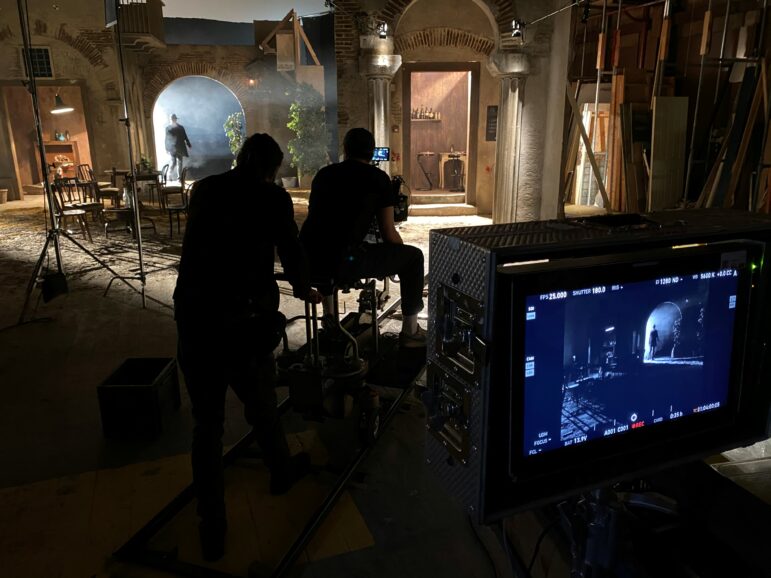
The crew issue
The BSC is, naturally, interested in camera. If there’s any one national UK organisation with a broader responsibility to solve the crew issue, it’s ScreenSkills. Head of film and animation, Gareth Ellis-Unwin, has credits as producer including The King’s Speech, though his beginnings were not atypical. “I struggled for a year at bar jobs, managed to get on one show that liked me, and they carried me on other projects together.” Ellis-Unwin echoes Ross’s thoughts. “On The King’s Speech I hired 456 people. There was one director, one writer, four producers and everyone else had a proper job!”
Anyone interested in those ‘proper jobs’ will find details on ScreenSkills’ site, Ellis-Unwin says. “We’ve mapped them so people can see where they fit into the broader picture. I think what people also know us for is Trainee Finder. We work with people to manage a year in industry; we help with onboarding, CV analysis; we regularly speak to the big US studios and streamers. People will see three paid placements through the scheme and will go on to find their own successes.
“We recognise higher education still has an important role to play, so we have a scheme called Select which describes 115 courses which give applicants and perhaps their carers information about the courses. A part of this challenge is that we don’t, as an industry, require the volume of output that make certain types of training easy. Most work is done on short term, fixed contracts, so guaranteeing an apprentice eighteen months’ work is difficult. We have actually just launched our second pilot, the Flexi-Job Apprenticeship pilot. We’re working with some serious employers to try to unlock apprenticeships more effectively.”
This seems like progress, with 20 apprenticeships organised in 2021. As ever when inducting new people, though, existing workers can be, to use a popular term, a little gruff. Christopher Ross is commendably frank: “The arts and crafts side of things are generally liberal and open, however, there are areas where employment opportunities are more restrictive. But there is a real, quantifiable labour shortage, there simply aren’t enough grips or electricians, desk ops etc. So, the grip and electric departments of the UK go understaffed, which is where we currently are, and moves need to be made to fill these labour and skills gaps. The best way to do this is for the existing workforce to be involved in the educations of incoming workers. Not an easy sell but essential for the longevity of the industry.”
The benefits of apprenticeships to the bottom line, as Ross notes, can be huge. “What’s really impressive is that the government pays a large proportion of the cost. You can hire two apprentices at the cost of one regular employee. The downside is that the apprenticeship program has to be recognised by the government.”
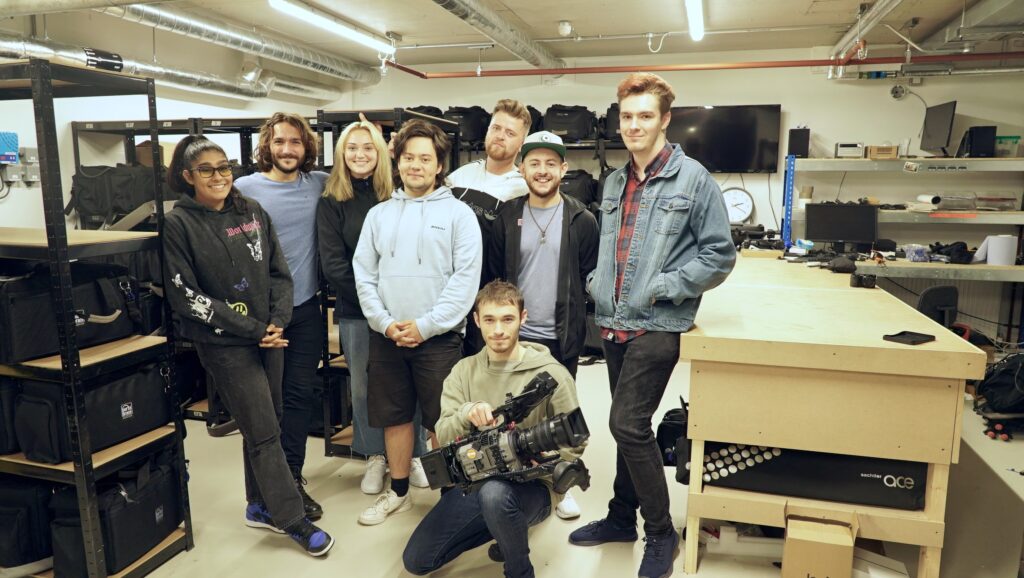
Focus on longevity
That very issue is one Barry Bassett, managing director at rental house VMI, has worked hard to address over many years, becoming well-known in the industry for his stalwart efforts toward more regularised training. His interest was provoked by a simple problem: staff retention. “I ran a productivity report and found that after a year trainees increase their productivity between 40 and 120 percent,” Basset begins. “That means we spend the first year training people, and the second year is what we really want to get out of them.”
Pre-pandemic, Bassett had already noticed that the gold-paved streets of on-set work had begun to tempt trainees away earlier than ever. “I sit on the board of ASPEC, which represents the rental companies, and in about 2017 I said to Mark Furssedonn, who was then rental head of Panavision, about the issue that people join us and leave six months later. He said they were having similar difficulties.”
Bassett’s laudable intention had been to pay the London Living Wage but found “it was very hard to pay people who were fresh out of college £22,500 a year. I approached the Living Wage people, and they told me that we had to pay that to everybody after six months unless they were in a formal training scheme. So, I approached Mark and said, ‘we could set up an apprenticeship scheme!’ He said, ‘it’d be loads of work, and who’s going to do it?’”
“It’s a bit of a character flaw of mine that if I’m told I can’t do something,” Bassett confides, “I like to do it. In April 2020 the standard for the apprenticeship was approved.” At this point, world events interceded in a way that would quickly illustrate why these problems are so trying. “It was right at the start of COVID. So, we agreed we’d launch in August 2021. About that time, Panavision, ARRI, Take 2 or a few other important companies didn’t want extra people because of COVID. The 20 people we’d wanted ended up being 11, and only nine confirmed.”
An unanticipated financial reality compounded the problem. “On their first college day, the apprentices all talked about how much they were being paid, and some people left their sponsoring organisation to join one that was paying more. If people weren’t valuing the course, weren’t being paid much and had a foothold in the industry…” Bassett trails off.
Over the first year of Bassett’s carefully planned initiative, the initial eleven apprentices were whittled down to just three. “It’s gone really badly,” Bassett admits, with commendable candour. “But when things don’t work, smart people look at what lessons there are. We take positives away from it and find ways to use what we’ve learned. We’re about to restart our internship program that we’d stopped over COVID, reassemble the original team and say what have we learned from this.” Bassett encourages hopefuls to check the careers section of VMI’s website for updates. Is VMI hiring? “Yes, we are.”

Getting that break
Another organisation with initiatives soon to launch is Digital Orchard. Kate Rolfe is the director of the company’s eponymous Foundation, which arises from the company’s broad base of work. “We are a post facilities company covering set-to-post, and we represent DITs and video operators who work on film and high-end TV drama. We have a central dailies operation, and we do film scanning, so we have a relationship with Kodak, and we do scanning for the work they process in the UK. We’ve moved into post so we have colourists.”
As any recent entry to the film industry will be painfully aware, gaining credits can be a vicious circle of being insufficiently experienced to get a job which would provide experience. “You can come here with us,” Rolfe says, “you can train, you can learn, and people will get on set. The thing we hear from other people is that people need hands on experience. If you keep saying to people you can only do this if you have this exact experience, or if you have this kit, then you’re not going to progress at all.”
Having run The Talent Bar at the 2022 BSC Expo where new entrants could discuss career options with established people, Digital Orchard is keen to do more in future. “I didn’t just want to do that once a year and that’s done. We’re looking at whether you actually get a job out of this at three months, six months, a year. It’s very well sitting down with someone for a half-hour coffee, but people need a job.” That issue, as Rolfe goes on, continues to dog careers after the initial stages. “People will say ‘I’m getting pigeonholed in this kind of job; I can’t prove to you I can step up.’ It’s those mid-career people, it’s all about giving them real life experience.”
If there’s a single issue that might upset the industry’s recruitment apple cart, though, it’s the potential for any failure in the sheer volume of work. While some streaming services have experienced a slackening in demand and the post-pandemic rush is inevitably time-limited, the BSC’s Ross is confident. “I guess there’s no crystal ball as to whether the current glut will carry on, but British DPs spend a lot of their lives flying around the world and the thing we’ve discovered internationally is that there’s not enough stages for every territory, and the current trend of creating more and more studio spaces does seem to be a positive sign.”
At ScreenSkills, Gareth Ellis-Unwin is upbeat. “We published a piece of research on 24 July which looked at this projected growth curve over the coming three to five years. There’s going to be some plateauing, given Netflix has seen a subscriber drop and there’s a question over how much content can be commissioned, but we’re projecting scripted to go from £5.6 billion a year to £7.5 billion by 2025. To do that we’re going to need 15 or 20,000 new crew members. That’s not just new starts, that’s across the whole area. We need to see investment in training to a very significant level – we need £100 million invested in screen industry training. It’s going to take an overhaul of thinking to bring everyone together to ensure that crew availability.”

